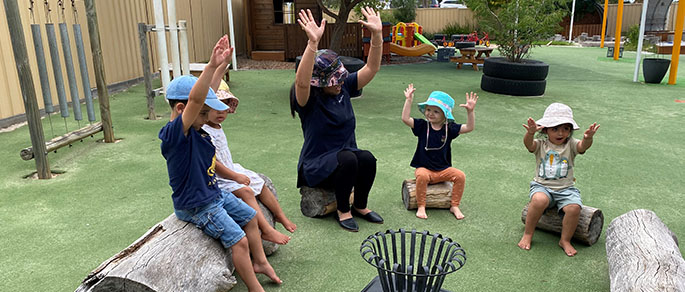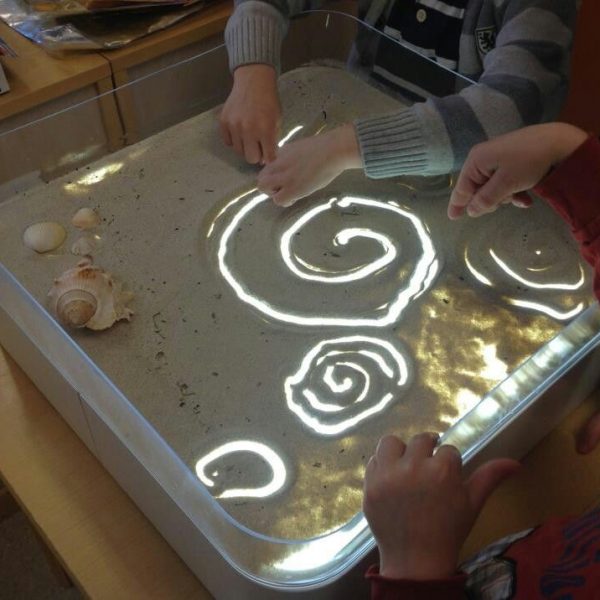MercyCare Kelmscott share their steps toward connection to Country

The educators, children and families at MercyCare Kelmscott all share a commitment to engaging with the culture and connections of the Whadjuk people, on whose land they live, work and play.
Working in the early childhood education and care (ECEC) sector gives professionals “an opportunity to introduce children to the Aboriginal culture and its traditions; it is here where we plant the seed,” manager Kym Corbett explained.
Customs and traditions of the Whadjuk people have been embedded into learning opportunities at Kelmscott, and the children are learning key words in Whadjuk language which they then use in other activities such as music and singing.
The bush tucker garden, featuring plants native to the region, is something the children “take enormous pride in,” Ms Corbett said.
“They planted every single edible native plant with help from one child’s family member, who came in to teach children about Indigenous plants.”
Incorporating Aboriginal traditions and culture into everyday activities and having visual representation of it throughout the centre went a long way in welcoming Aboriginal families to the centre and making it a culturally safe place for their children, she continued.
“Acknowledging Aboriginal culture and having it embedded in our service is really important to us,” she said.
“Things like having the Aboriginal and Torres Strait Islander flags around our centre, and having the Acknowledgment of Country shared each day are important ways to embrace the culture of many families that attend our centre.”
Ms Corbett, a Maori woman from New Zealand, said that being born and raised in a country such as New Zealand, with a strong cultural identity meant she was saddened when she moved to Australia and saw “the lack of recognition the Indigenous people receive.”
“As early learning educators, we have an important opportunity to plant that seed and break down stereotypes,” she added.
Ms Corbett and a cohort of MercyCare staff recently immersed themselves in a five-week Whadjuk Language education course, which will support ongoing Aboriginal learning activities across MercyCare’s early learning centres.
To learn more about MercyCare, please see here.
Popular

Quality
Practice
Provider
Research
Workforce
Honouring the quiet magic of early childhood
2025-07-11 09:15:00
by Fiona Alston

Policy
Practice
Provider
Quality
Workforce
Minister Jess Walsh signals urgent action on safety and oversight in early learning
2025-07-11 08:45:01
by Fiona Alston

Workforce
Policy
Quality
Practice
Provider
Research
The silent oath: Why child protection is personal for every educator
2025-07-17 09:00:31
by Fiona Alston











